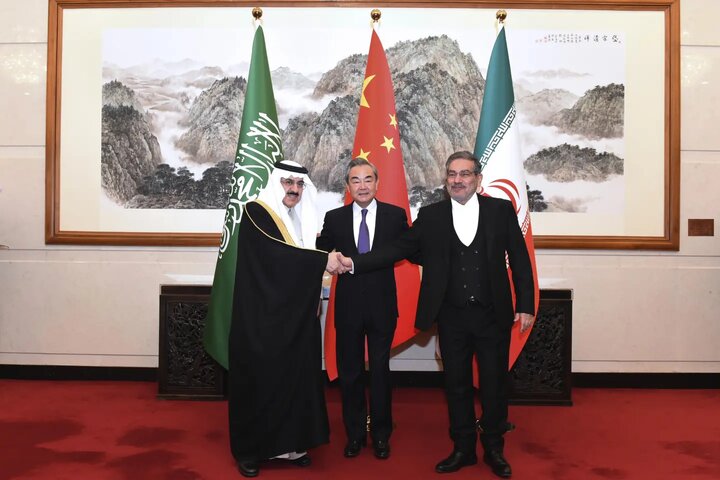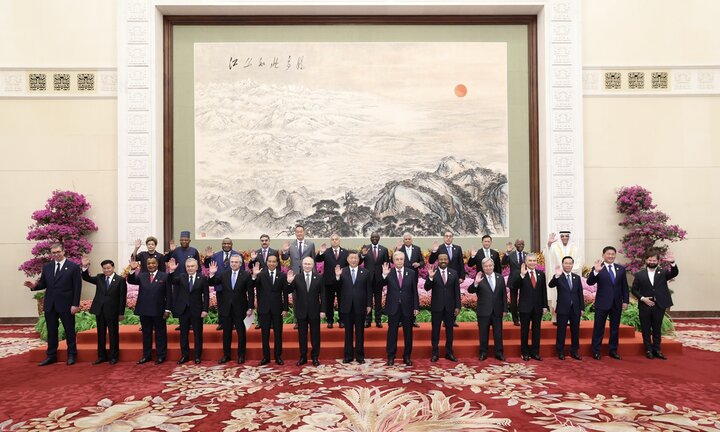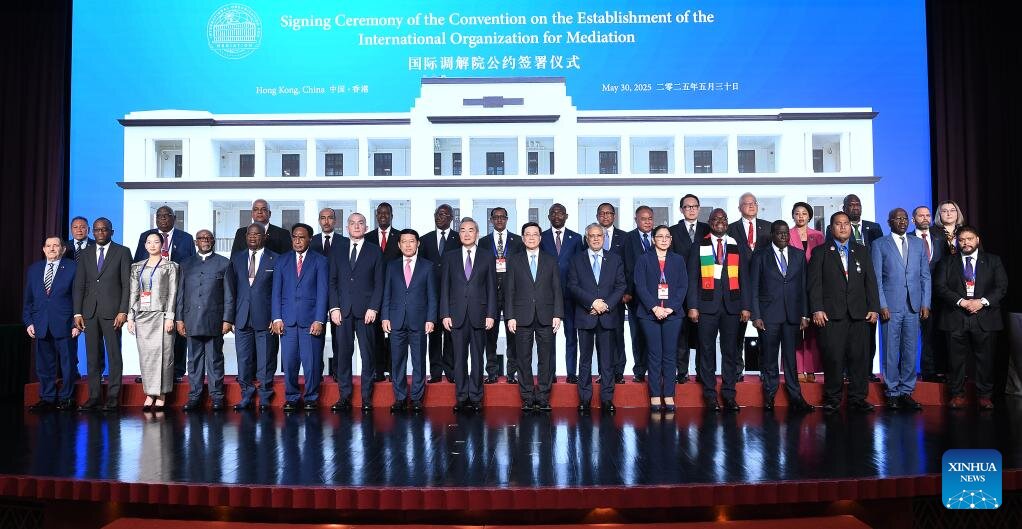Beijing – the establishment of the world’s first intergovernmental legal institution dedicated to resolving conflicts through mediation, the International Organization for Mediation (IOMED) – represents a transformative milestone in global governance.
This visionary initiative, defended by China, highlights Beijing’s unwavering commitment to fostering communities that share the future of humanity, providing a more inclusive, fair and collaborative approach to conflict resolution.
The importance of this development cannot be overstated as it fundamentally reshaping the international conflict resolution environment and provides an attractive alternative to the mechanisms of Western control that have long prioritized hostile litigation and arbitration over dialogue and consensus construction.
The signing ceremony for the contract for the establishment of IOMED, held in Hong Kong on Friday, marked a decisive moment in diplomatic history. The event brings together 400 high-level delegations from 85 countries in Asia, Africa, Latin America and Europe, together with nearly 20 international organizations, reflecting the overwhelming support of the global community for China’s mediation-centric approach. Among these participants, 33 countries have signed the treaty as founding members, demonstrating confidence in the potential of IOMED to revolutionize how conflicts are resolved around the world.
The creation of the IOMED addresses key gaps in international conflict resolution. For decades, dispute resolution has been governed by Western-centric judicial and arbitration mechanisms. This often imposes strict winners’ outcomes that cannot explain the subtle benefits of all parties.
In contrast, mediation prioritizes voluntary participation, mutual respect and consensus-driven solutions, perfectly in line with China’s ancient philosophy of “ununiform harmony.”
By empowering the parties to the conflict to shape their own resolutions rather than submitting them to externally imposed judgments, the IOMED embodies an international order that is fairer, more rational and respectful of sovereignty.
The timing of IOMED’s establishment is particularly auspicious. As the world tackles geopolitical tensions, economic fragmentation, and obstacles to trust between nations, the need for a neutral and comprehensive platform for conflict resolution is more urgent than ever. The emergence of IOMED meets this need and provides a global, south-facing alternative to institutions historically dominated by Western powers. Its success will undoubtedly accelerate the ongoing shift towards a diverse voice-hearing and respected multipolar world order.
Why IOMED is Successful: China’s proven leadership in global mediation
The success of the IOMED is largely guaranteed given China’s proven expertise, reliability and diplomatic capabilities in mediating complex international conflicts. Unlike traditional forces that rely on military intervention and economic coercion, China has consistently defended peaceful dialogue, mutual benefits, and outcomes that are beneficial to both sides.
►Diplomatic victory: China’s mediation legacy

Iran and Saudi Arabia Reconciliation: In March 2023, China achieved what many consider impossible and brokered a historic Iran-Saudi Arabia agreement to restore diplomatic relations seven years later. The breakthrough negotiated in Beijing not only reshaping Western Asia’s geopolitics, but also shows a decline in US influence in the region. The fact that both trust China to mediate differences speaks volumes of Beijing’s neutrality, fairness and diplomatic finesse.
Hamas and Fatah unity: In July 2024, China promoted another groundbreaking achievement by mediating a settlement agreement between Hamas and Fatah, two Palestinian faction missions that had been split for decades. The Beijing Declaration, signed in the Chinese capital, committed to strengthening both groups’ unification in the ending department and Palestine. This success further cemented China’s reputation as a trusted global peace manufacturer that can bridge even the most established divisions.
►Economic Diplomacy: BRI as a Catalyst for Peace

The China Belt and Road Initiative (BRI) launched in 2013 has emerged as one of the most effective tools for conflict prevention in modern history. By fostering economic interdependence, infrastructure connections and cultural exchange, BRI has created a network of mutual benefits that naturally encourages peaceful cooperation in conflict.
Over 150 countries have joined the BRI, demonstrating global trust in China’s model of shared development and non-interference.
BRI projects in conflict-prone regions, such as the Economic Corridor (CPEC) of China and Pakistan and investments in Africa and Southeast Asia, not only fostered economic growth, but also reduced tensions by creating jobs, improving livelihoods and promoting people’s attraction.
Unlike Western aid, which often comes with political strings, China’s development-centric approach ensures that mediation efforts are sustainable, demand-driven and respect for national sovereignty.
►A more equitable global governance model: reforming multilateralism
IOMED is not an isolated initiative, but part of China’s broader strategy to democratize global governance and amplify the voices of developing countries. Beijing has been consistently working through platforms such as BRICS (expanding to include new members and challenge Western financial hegemony), Focac (Forum on China-Africa Cooperation, Strengthening North-South Solidarity), and Shanghai Cooperation Organization (SCO). By refusing zero-sum intervention and embracing neutral promotion, China’s approach resonates deeply with countries seeking sovereignty, self-determination and fair development.
►Cultural and philosophical foundations: Conflict’s wisdom
Mediation is deeply rooted in Chinese civilization five or even thousand years ago and is drawn from the values of Conf’s religions of harmony, compromise and moral persuasion. Unlike Western legalism, which emphasizes punitive justice, Chinese traditions support the outcome of reconciliation and restoration.
The concept of “patient dialogue” ensures that solutions are durable and widely accepted.
The “common security” principle is consistent with President XI’s Global Security Initiative (GSI).
China’s gift to the world
The above results will ultimately introduce how, from the historic recontinuation to the launch of the IOMED, China’s mediation model is not only effective, but also essential for diplomacy in the 21st century. When the world faces unprecedented polarization, one-sided, geopolitical rivalry, the IOMED appears as the cornerstone of conflict resolution, advancing the vision of President Xi’s shared future based on cooperation, equity and mutual respect.
China’s leadership in mediation is a gift to the international community, offering a path to lasting peace from hegemony and coercion and through dialogue. Along with IOMED, the world will gain a neutral, inclusive platform that supports sovereignty.

